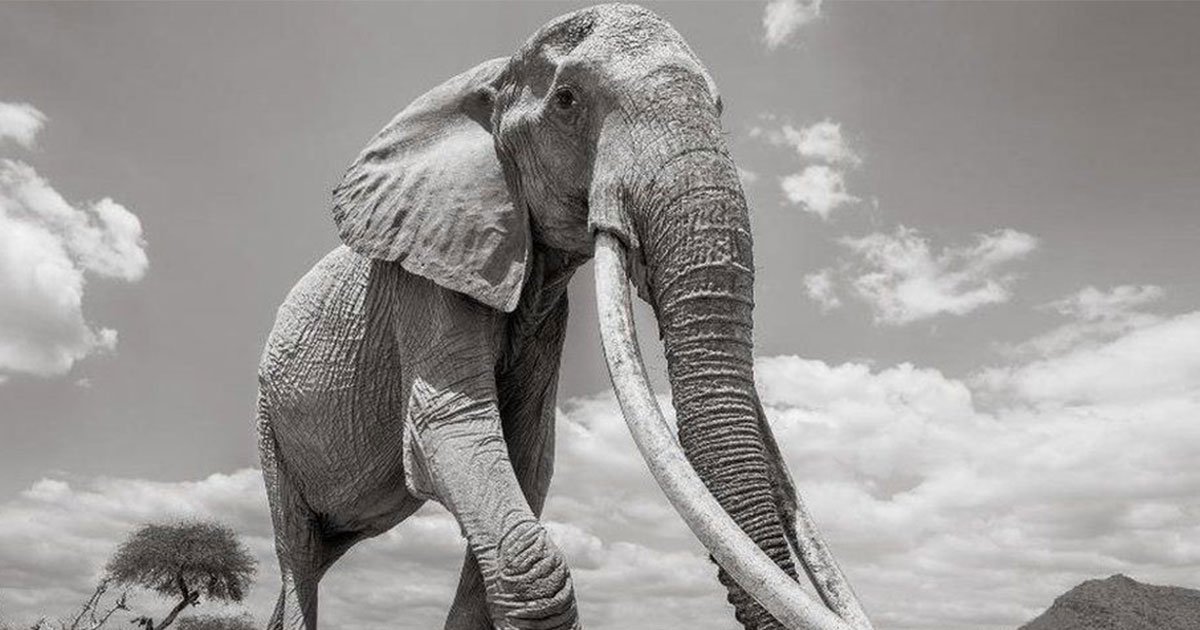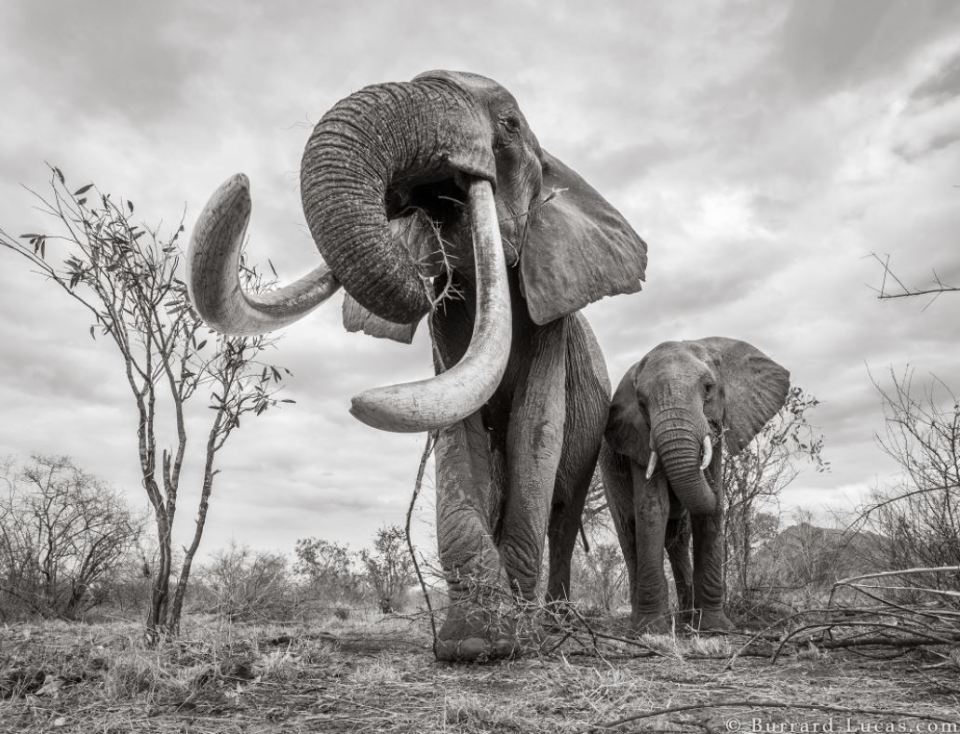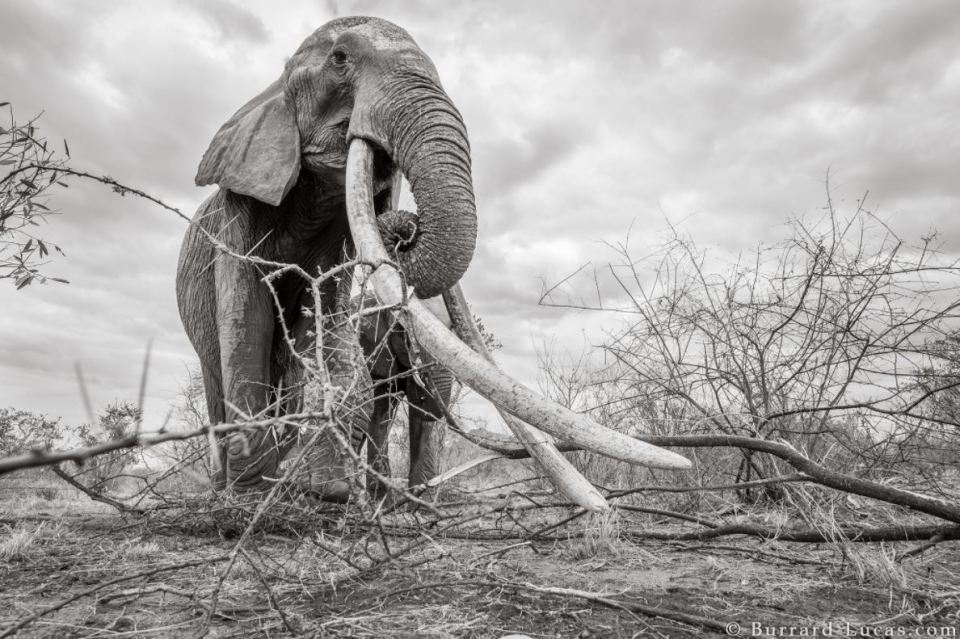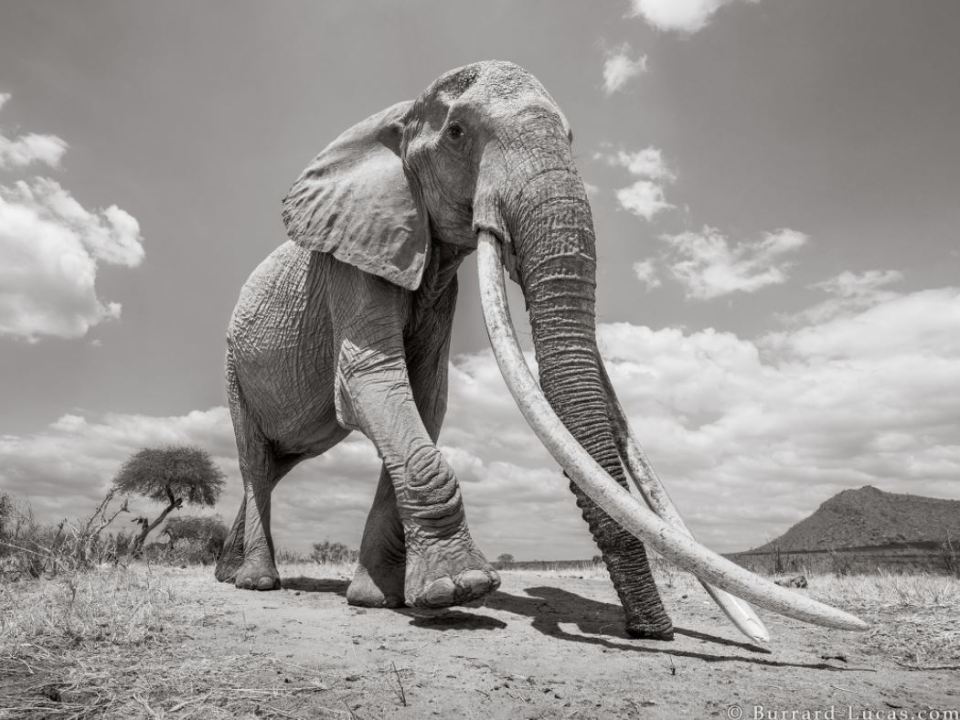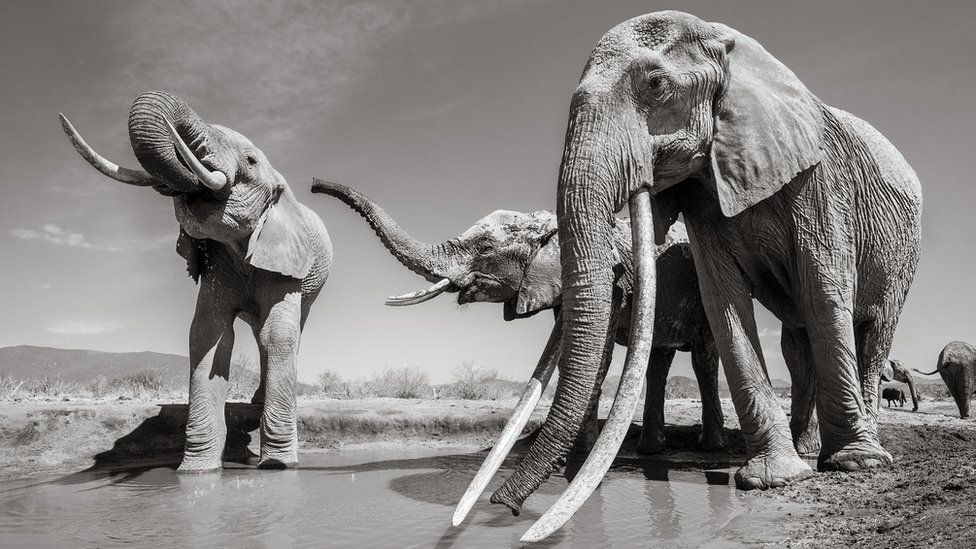The elephant who is known as a “super tusker” due to her enormous 45kg tusks being so big that they graze the ground – and following her death, there are now fewer than 30 super tuskers left in Africa.
The photos of the giant animal known as F_Mu1 – were taken by British wildlife photographer Will Burrard-Lucas who became transfixed by both her size and timid, almost regal nature.
Will, 35, said: “If ever there were a Queen of Elephants, it surely would have been her.”
He took a series of black-and-white snaps during an 18-month project working in partnership with the Tsavo Trust and Kenya Wildlife Service.
Recalling his life-changing experience meeting the Elephant Queen, Will said he was left “speechless.”
He wrote in his blog: “F_MU1 was skinny and old but she strode forward with stately grace.
“Her tusks were so long that they scraped the ground in front of her. She was like a relic from a bygone era.
“She had survived through periods of terrible poaching and it was a victory that her life was not ended prematurely by a snare, bullet or poisoned arrow.”
Will’s photographs feature in a new book Land Of Giants. He took the last photo of F-MU1 at a water hole.
“It was a feeling of privilege and euphoria that will stay with me forever,” he says.
Two years ago, a 50-year-old super tusker called Satao II, was killed near the Tsavo National Park border.
“Super tuskers are very rare these days, precisely because their big tusks makes them prime targets for trophy hunters,” says Dr Mark Jones from the Born Free wildlife charity.
“Because these animals are all-too-often taken out before they have reached their reproductive prime, super-tusker genes are being bred out of elephant populations, and we could very well be seeing the last of them.”
Recommended Video – “The Reason Why Elephants Poke Each Other’s Anus With Their Nose”


